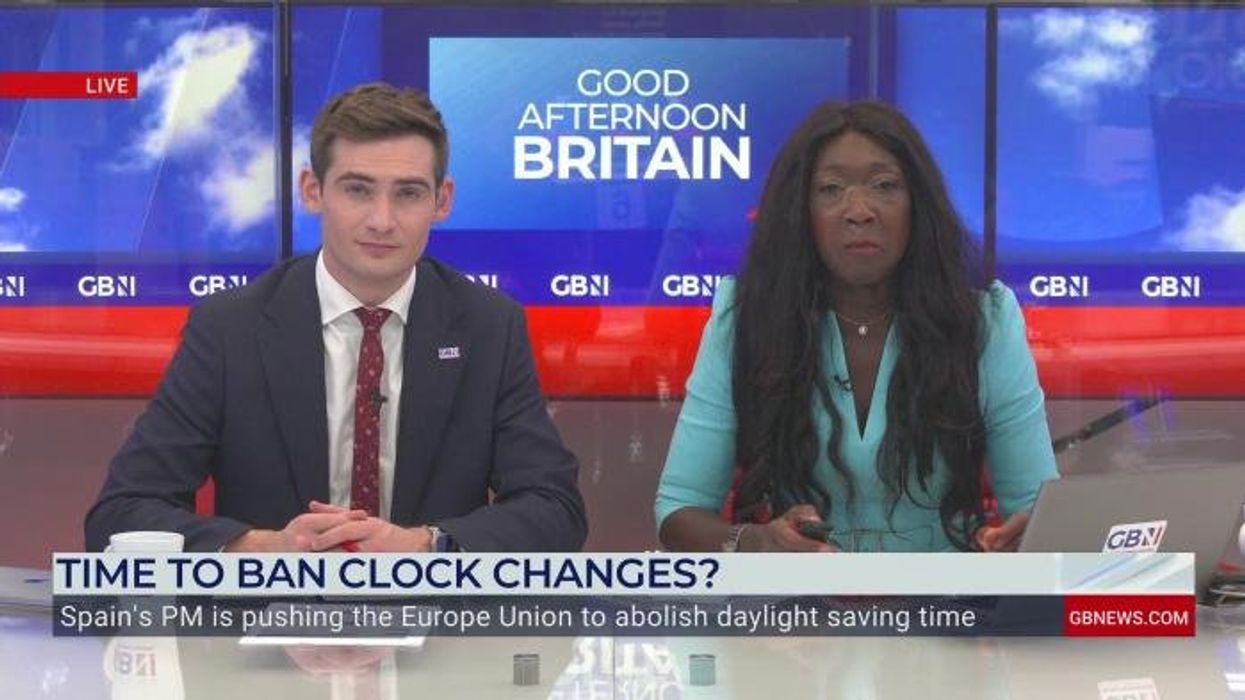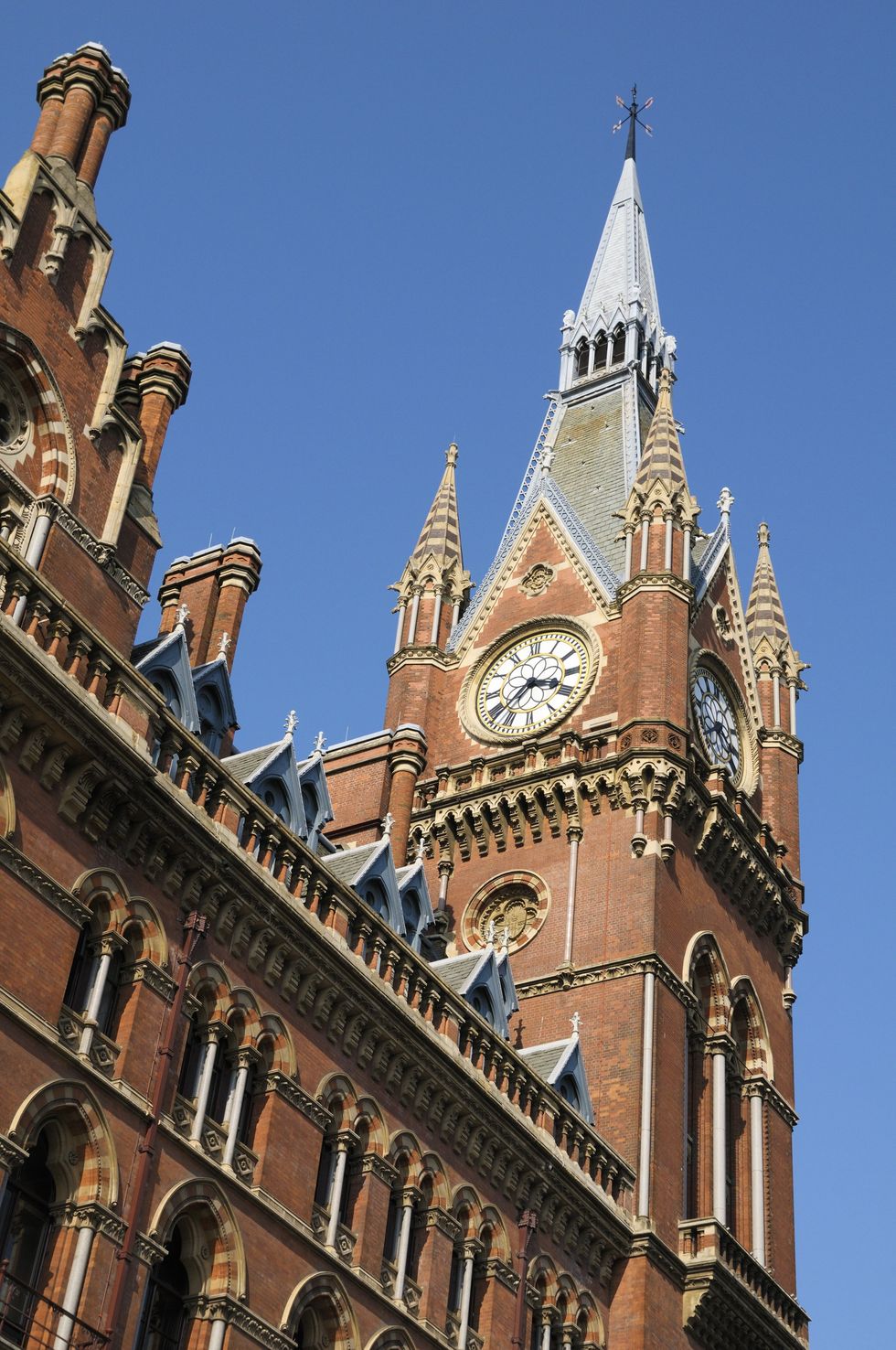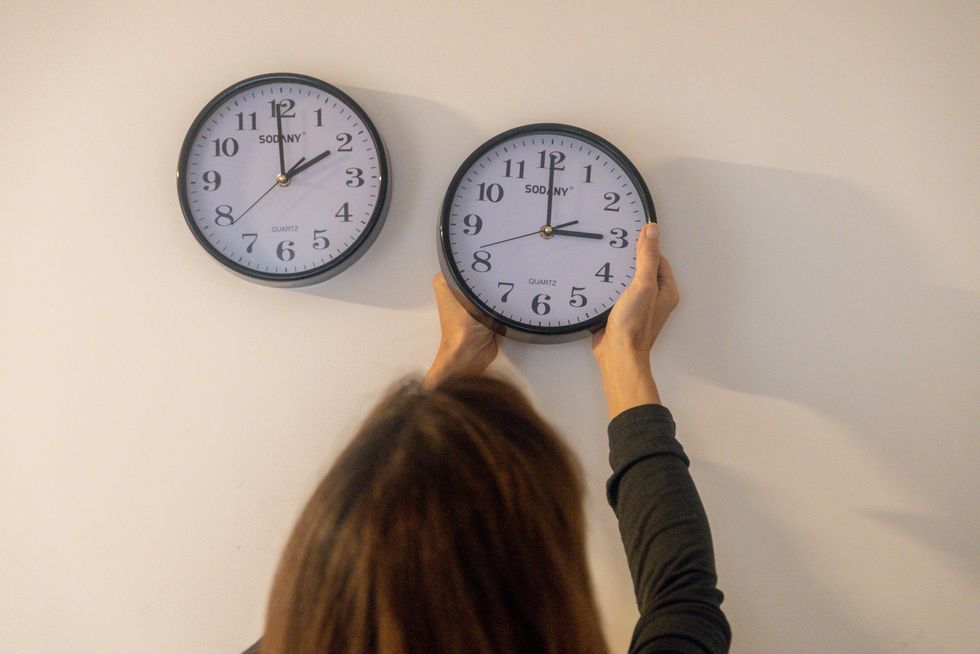When do the clocks go back? Why more than 1 in 4 working Britons could be hit hardest by time switch

WATCH: Christopher Snowdon and Peter Hitchens debate the possible abolition of daylight saving time
|GB NEWS
Most Britons will get an extra hour in bed this weekend, but others could suffer as the clocks change
Don't Miss
Most Read
Trending on GB News
More than a quarter of Britons could lose out on one crucial benefit of the clocks going back this weekend.
British Summer Time will end on October 26 - and the nation will return to Greenwich Mean Time.
As a result, at 2am on Sunday clocks across the UK will shift back an hour.
For most Britons, this means an extra hour in bed - however, for those who work overnight, it means an extra hour of work without necessarily being paid.
TRENDING
Stories
Videos
Your Say
HR site Personnel Today said: "Employers don't necessarily have to pay employees for working an hour longer on a particular shift. The situation can differ for hourly paid and salaried employees.
"For some workers, the position will even out when they gain an hour working the night shift when the clocks go forward again in March.
"But this won't always be the case - a worker who works an extra hour in October might not be working the night shift when the clocks go forward again in March."
Census data shows that 27 per cent of working Britons work at night.

The clocks will go back on Sunday, October 26 as Britain returns to Greenwich Mean Time
|GETTY
Around 8.7 million people in the UK were night-time workers in 2022 meaning they "usually" work either in the evening or the night, irrespective of whether they also "usually" work in the day.
The industry with the largest number of night-time workers is the medicine and social services sector, followed by hospitality then retail.
For years there have been calls to stop changing the clocks, with people using both social and health issues as their reasoning.
Charlie Morley, a dream researcher, told Sky News: "What research shows is what a massive effect on the body and mine just one extra hour [of sleep] can have."
ACROSS THE UK - READ THE LATEST FROM GB NEWS:

Changing the clocks was introduced to make the most of natural sunlight in the winter
|GETTY
He added: "The interesting thing is when you ger a really short amount of sleep, like four hours or less, the fear centre of the brain, known as the amygdala, becomes 60 per cent more active.
"This can make it seem like everything is annoying, threatening or in conflict.
"So if you lose an hour of sleep, you might see an increase in the amygdala response, making you more grumpy or tetchy."
Research from the American Heart Foundation found there was a 24 per cent increase in heart attacks the day after the clocks go forward in spring and people lose an hour of sleep.
Similarly, a 2016 Finnish study found an eight per cent rise in hospital admissions for the most common kind of stroke in the two days after Daylight Savings is introduced.
The idea of changing the clocks was originally implemented to maximise natural daylight usage throughout the year.
However, some critics argue this is no longer applicable due to modern, indoor-focused lifestyles which see people inside offices or homes regardless of the natural light outside.
More From GB News










